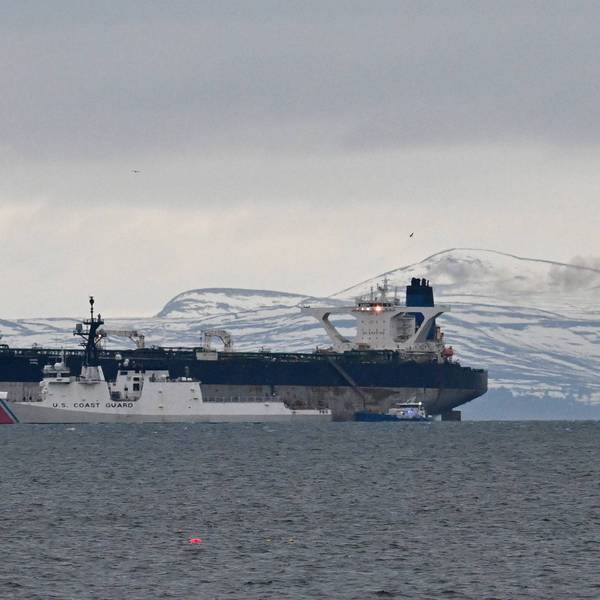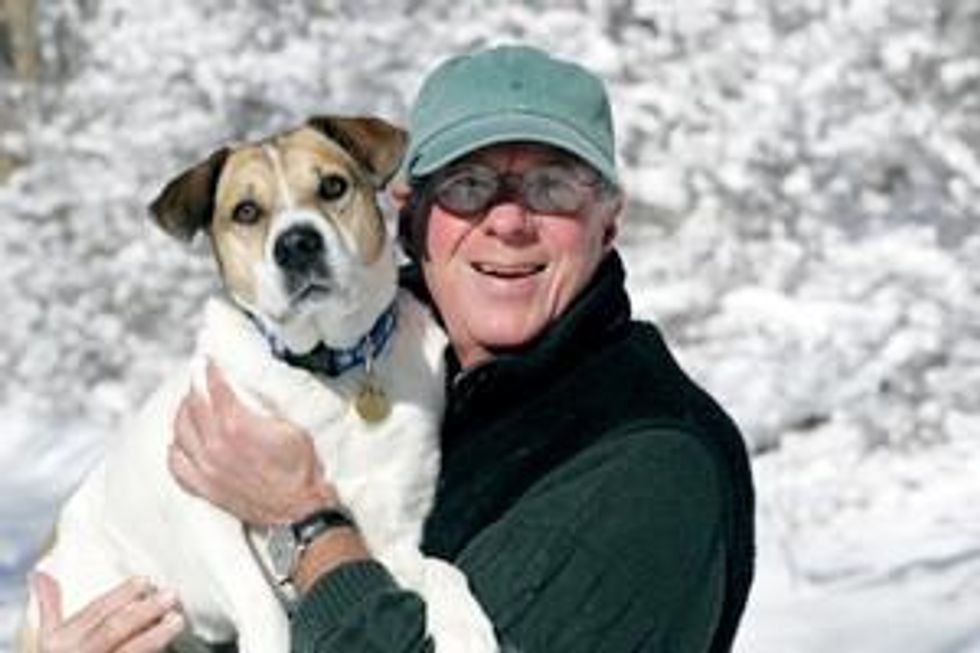Oil is the source of so much pain in the world. Around the globe, wherever oil is extracted, people suffer a constellation of injuries, from coups and dictatorship to pollution, displacement and death. Pipelines leak, refineries explode, tankers break up and deep-sea drill rigs explode. The thirst for oil disrupts democracies and the climate. Not far from the burgeoning fracking fields of Colorado, Frederic "Rick" Bourke sits in a minimum-security federal prison. His crime: blowing the whistle on corruption and bribery in the oil-rich region of the Caspian Sea.
Rick Bourke is perhaps best known for founding the luxury handbag company Dooney and Bourke. He is a philanthropist, and has invested his wealth into ventures seeking novel cures for cancer. In the mid-1990s, he met a Czech national named Viktor Kozeny, dubbed "The Pirate of Prague," who reaped tens of millions of dollars through controversial deals during the privatization of Czech national assets. Kozeny sought greater fortunes by recruiting investors for the takeover of SOCAR, the state-owned oil company of Azerbaijan, a former Soviet republic on the western shore of the Caspian Sea.
Kozeny promised unprecedented returns on the investments. Serious investors vetted the opportunity and sank huge sums into the enterprise, including Columbia University's investment fund, the insurance giant AIG, legendary hedge-fund manager Lee Cooperman, a longtime executive at Goldman Sachs, and former Senate majority leader George Mitchell. Bourke's attorney, Michael Tigar, summed up the result on the "Democracy Now!" news hour: "Kozeny was a crook. He stole every bit of Rick Bourke's money and all of the other investors' money. He bribed Azeri officials. He lives today happily unextradited in the Bahamas."
Kozeny paid huge sums to the president of Azerbaijan, Heydar Aliyev. Like Russia's President Vladimir Putin, Aliyev was a former top-level KGB official. He gained control of the country shortly after the Soviet breakup. His son, Ilham, during the period of Kozeny's scheme, was the head of SOCAR. Kozeny employed a Swiss lawyer named Hans Bodmer to coordinate the complex scam. An American named Thomas Farrell, who runs a bar in St. Petersburg, Russia, became the bagman, ferrying duffel bags of cash to Baku, the capital of Azerbaijan.
The investment tanked, and Kozeny absconded with the remaining funds. Rick Bourke went to the Manhattan District Attorney's Office, which has a history of going after white-collar crime. He spoke with Assistant District Attorney Mariam Klipper, an expert on privatization in Eastern Europe. The DA's office indicted Kozeny, who skirted the prosecution and is enjoying relative immunity in the Bahamas.
As the lone whistle-blower, Bourke also cooperated with federal prosecutors. Nevertheless, they decided to set their sights on him. He eventually was found guilty under the Foreign Corrupt Practices Act, not for bribing anyone, but for alleged knowledge of the bribes, even though the entire case rested on testimony of the Swiss lawyer, Bodmer, and Farrell. At sentencing, former assistant district attorney Klipper wrote to federal Judge Shira Scheindlin, seeking a lenient sentence for Bourke: "He was extremely helpful," she wrote. He "came to my office voluntarily and spoke candidly and with conviction about the case. We did not offer anything in return. ... I never had reason to doubt him." While Bodmer and Farrell also were indicted, they received very favorable plea deals. They both quickly left the U.S.
Much of the court record is sealed, likely because of the involvement of intelligence agencies. In a remarkable twist in the case, the former head of Britain's intelligence service, MI6, Sir Richard Dearlove, and the former deputy director of operations at the CIA, James Pavitt, both sought to testify on Bourke's behalf. They were reportedly denied the opportunity, perhaps to protect the intelligence value of both Bodmer and Farrell. In the murky world of petroleum geopolitics, it is very difficult to know.
The son of Heydar Aliyev, Ilham Aliyev, succeeded his father as president of Azerbaijan, ruling the country with dictatorial control. He just won his third term as president last week, with the initial election results being reported the day BEFORE voting began. Human Rights Watch issued a report in September, "Tightening the Screws: Azerbaijan's Crackdown in Civil Society and Dissent."
Rick Bourke sits in the federal prison in Englewood, Colo., sentenced to a year and a day. Former Washington Post reporter Scott Armstrong, who founded the National Security Archive and chaired the Government Accountability Project, spent years investigating the case. As a senior investigator on the Senate Watergate Committee, Armstrong uncovered the existence of President Richard Nixon's secret taping system. He knows corruption when he sees it, and considers Bourke a genuine whistle-blower. He summed up the case: "This elaborate set of frauds that Kozeny was involved in were in essence covered up by the United States government, who chose instead to bring the full weight of their investigative enthusiasm against the whistle-blower. And that just shocks the conscience."
Denis Moynihan contributed research to this column.




